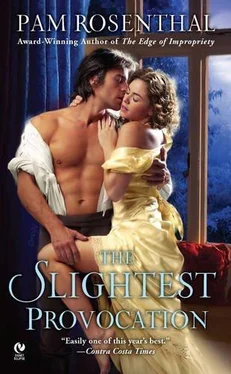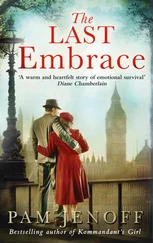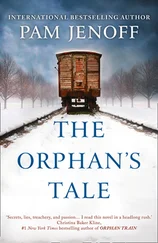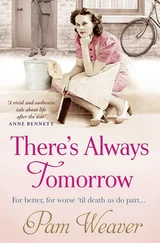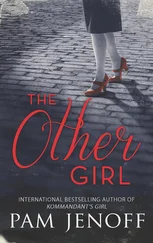Jessica had written about whole families living on oatmeal, and not much of that.
“But I hear good things as well,” he continued. “Hampden clubs, Parliamentary reform societies springing up in the countryside. Luddite victories seem to have made the men confident of themselves and curious about what else can be changed, speaking more broadly. They’ve taken to reading Paine, Cobbett…” He paused.
Mary took her cue. “They’re even reading Every-man’s Review, I expect. And perhaps a few women are reading it as well.”
He nodded. “Bit of a rise in circulation; an honor to contribute to the spread of ideas. For there’s a sentiment growing, you see, that government should represent more than those that own the land. Shocking, ain’t it, that Manchester has not one MP to represent it, with all that industry? Of course, if our esteemed government chooses to label such thinking as anarchy… if they make it illegal to discuss these things in public meetings and then suspend habeas corpus so as to more easily arrest those who do speak out… and then last January, to ignore the men who petitioned for the reform of Parliament…”
“Appalling to treat them that way,” Anna said. “Although one could also wish that someone would petition for Mary’s and my right to vote.”
Richard shrugged. “You should read the report, written by a bunch of Parliamentary blowhards who call themselves the Committee of Secrecy-pompous asses equating free discussion with the ‘total overthrow of all our institutions,’ hyenas howling that the reformers are ‘undermining the people’s habits of decent and regular subordination.’ ”
The report that Kit had found so alarming. In case Mary needed any further proof of how unsuited he and she were to each other.
She sighed. “Perhaps I will try another essay,” she said, “about the hardships poverty-stricken wives and mothers are suffering in the country at a time like this. Poor things, to be so bereft in a place of such beauty.”
“You’ll be happy to get back there,” Anna said.
“I expect that I shall. I couldn’t live there all the time; I’m too fond of theater and lectures and painting exhibitions-not to speak of the brilliant society of people like you. Life does rather creep by in the country.”
Though at least one wouldn’t have to wonder whom one might catch sight of, as one did driving past Park Lane.
“But while I’m home-yes, I guess it is my home, really-I enjoy helping the Friendly Society, and Cathy Williams’s school for girls. I take tea with the vicar, accompany Jessica on her charitable errands, go on long, solitary tramps through the meadows. And then there’s my niece. I like being a favorite aunt and having her confidence. Betts will be eighteen now.” She paused. “No, not Betts. I’m told she wants to be called Elizabeth now.”
“I envy her, whatever she calls herself,” Anna said. “For I should have loved to have you for an aunt when I was at that dreadful age-one day so fearful of growing up, the next so eager and impatient for it. Of course, you’ll be awfully busy helping your sister-with the estate, the charities, and the midsummer preparations. We look forward to seeing your entire family-and dear Matthew Bakewell as well-when we come down for the festivities. It’ll be an especial treat for us, you know, because we’ll be coming after a week spent dozing by the fire with Richard’s Yorkshire aunts.” Her tone was soothing. As was Richard’s, when he hastened to add that Mary must not forget the essay she’d promised him.
Had she appeared to need so much soothing?
Of course she hadn’t.
She’d be busy and contented at Beechwood Knolls. Kit wouldn’t be a bother; he never came down to the country. The Calais encounter was already receding in her memory; the divorce proceedings, when they came, could mainly be left in the hands of the solicitors. And though she hadn’t quite known how to finish her letter to Matthew this morning, she was sure to think of just the right words by tomorrow.

The lamplight in the library of the Park Lane house was too bright and the fire needed stirring.
I could ring for assistance, Kit thought. But the real problem was the clamor of accusatory voices ringing in his ear. A late-night seduction at a remote inn-indeed and indubitably the worst strategy ever chosen for a lovers’ reunion, and what the devil could I have been thinking anyway?
He pulled a plush pillow from beneath his head, tumbling it down over his eyes to screen out the glaring light. Too bad he couldn’t similarly muffle the cacophony in his head. But then, he was used to being hectored, lectured, and otherwise belittled, having grown up under the tutelage of the old Eighth Marquess of Rowen.
Which didn’t mean that she should have sneered at him from behind spectacles that should have looked spinsterish but that he’d found oddly fetching. Needn’t have proclaimed herself so bloody certain that he was still the boy she’d run off with. The old, shallow, callow Kit, most ungoverned personage she’d ever met.
He’d caught a pleasanter sound now, of someone stirring the fire. The light seeping under the pillow had grown mellower as well.
The room set swiftly to rights, the butler suggested a light supper.
“Thanks, no. My stomach… rather in a knot from traveling all day. A cup of tea, though-send Belcher in with it, won’t you? He can pull off my boots while he’s here.”
The dowager marchioness wouldn’t think kindly of how he and his boots had been treating the settee he’d flung himself onto. And of course she’d soon know (for Thomas would tell her, Kit thought) about how he’d failed with Mary…
Well, he hadn’t failed in all ways.
If only they hadn’t fallen into argumentation. Had he really needed to regale her with all his most cherished plans when he’d barely got his buttons open?
Such a promising beginning. When he’d lain on top of her, when he’d entered her. And afterward, her voice in its throaty lower register. I want you again. Soon.
Then you bloody well shouldn’t have started in on lecturing me.
The Channel had been choppy, his hours on the packet boat anything but soothing. He’d had a bad night in Dover and his bones ached from being banged about in the post chaise up to town. The words of their last confrontation still rang in his head, in nagging counterpoint to the recurrent cadence of hooves, traces, and springs.
How many times between Dover and London?
“I didn’t” -clippity- “think…”
“No” -squeak and jingle- “you didn’t.”
Unfair. He’d thought of nothing but her since several weeks ago, when he’d glimpsed her at the theater in Paris. In truth, he’d thought about her for all the nine years of their separation. Not every minute; he’d had orders to follow, duties to attend to. But her image, her voice…
En route to Spain, he’d entertained himself far into the nights by imagining how awful and guilt stricken she’d feel when he met his heroic death in battle.
And when he’d left off thinking about death-when he’d begun instead to live in the service of responsibility and obligation-he’d taken to wondering what she might think of the man he’d become.
People sometimes spoke admiringly of him. Might she have heard any of that?
Читать дальше
